People often think that being a writer is easy. Anyone who’s literate can write, right?
But the reality is that there’s so much more to writing than putting words on paper or a text document – it’s a craft that takes a lifetime to master.
So how can you become better at it once you have committed to this path?
Here are 25 books that can help you with that…
1. Ernest Hemingway and Larry W. Phillips “Ernest Hemingway on Writing”
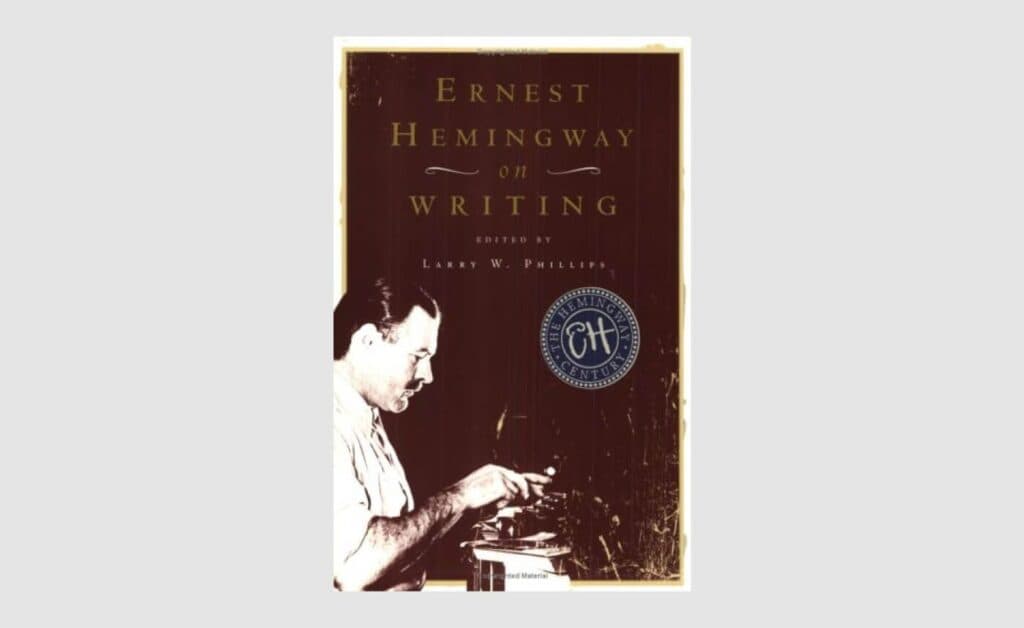
Source: Amazon
Ernest Hemingway is widely acknowledged as one of the best writers who have ever lived.
Unfortunately, he believed that talking about writing was bad luck, so he never wrote a book on the subject.
However, Hemingway often discussed writing in his articles, letters, and interviews, as well as in his novels.
“Ernest Hemingway on Writing” is a collection of his thoughts on the craft that come from a wide variety of sources and give an insight into the mind of a true story genius.
Buy on Amazon
2. Ray Bradbury “Zen in the Art of Writing: Essays on Creativity”
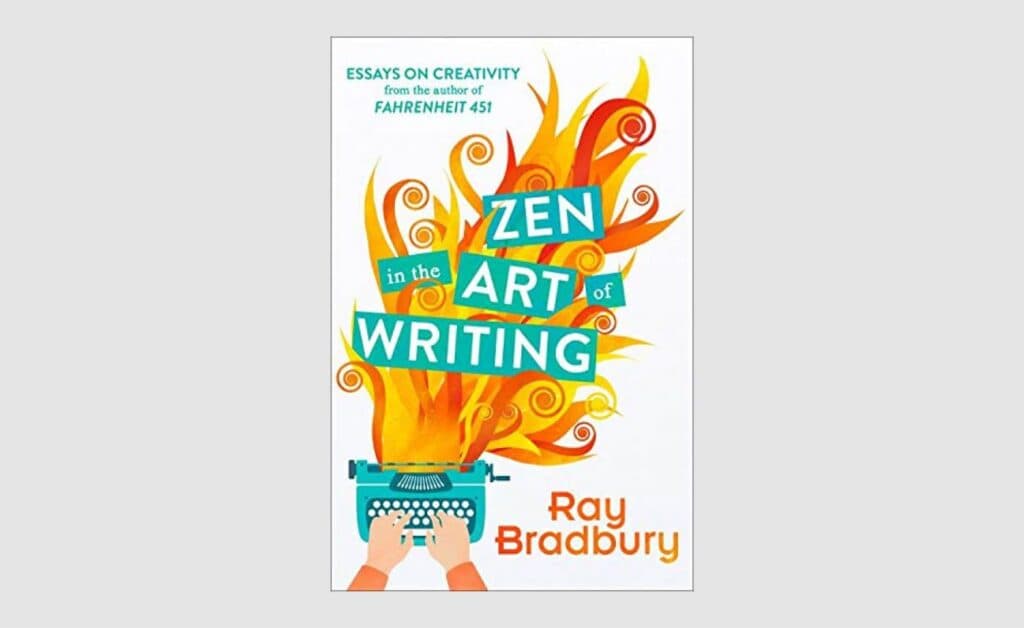
Source: Amazon
Ray Bradbury was a popular American writer who is best known for his dystopian novel “Fahrenheit 451”.
This book is a collection of nine essays where he shares his thoughts on writing, being a writer, and creativity.
Note that despite featuring the word “Zen” in the title, this book doesn’t discuss how Eastern spirituality relates to writing, so if that’s what you are looking for, “Writing Down the Bones” might be more up your alley.
Buy on Amazon
3. Virginia Woolf “A Room of One’s Own”
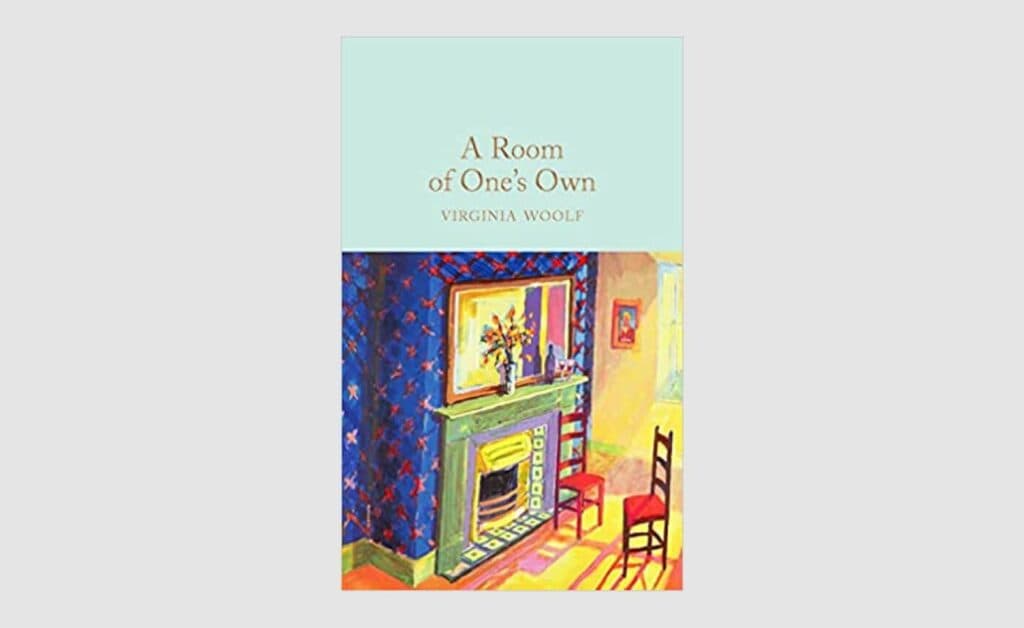
Source: Amazon
Virginia Woolf was one of the most influential English writers in the first half of the 20th century.
In this essay, she explores what prevents female writers from realizing their full literary potential, emphasizing the necessity of having an independent income.
While the world has changed drastically since 1929 when “A Room of One’s Own” was originally published, it remains a must-read for any woman who dreams of being a professional writer.
Buy on Amazon
4. Stephen King “On Writing: A Memoir of the Craft”
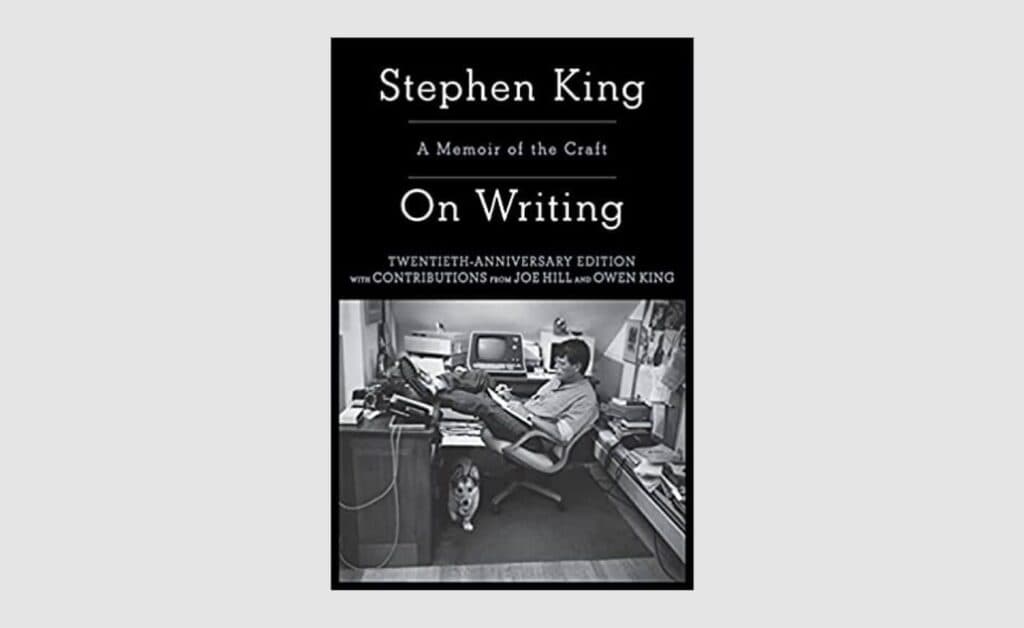
Source: Amazon
Stephen King is the most famous horror writer alive who also happens to be one of the world’s highest-paid authors (he made $17 million in 2019 alone!).
In this classic book on writing, he reminisces on his writing career, shares his thoughts on the writing life, and provides the backstories of some of his popular works.
He also discusses his creative process, common obstacles to writing fiction such as writer’s block, and the path to becoming a successful writer.
This Stephen King classic is one of the most popular books on writing out there, so whether you are an aspiring or a professional writer, you should probably grab a copy.
Buy on Amazon
5. Haruki Murakami “What I Talk About When I Talk About Running”
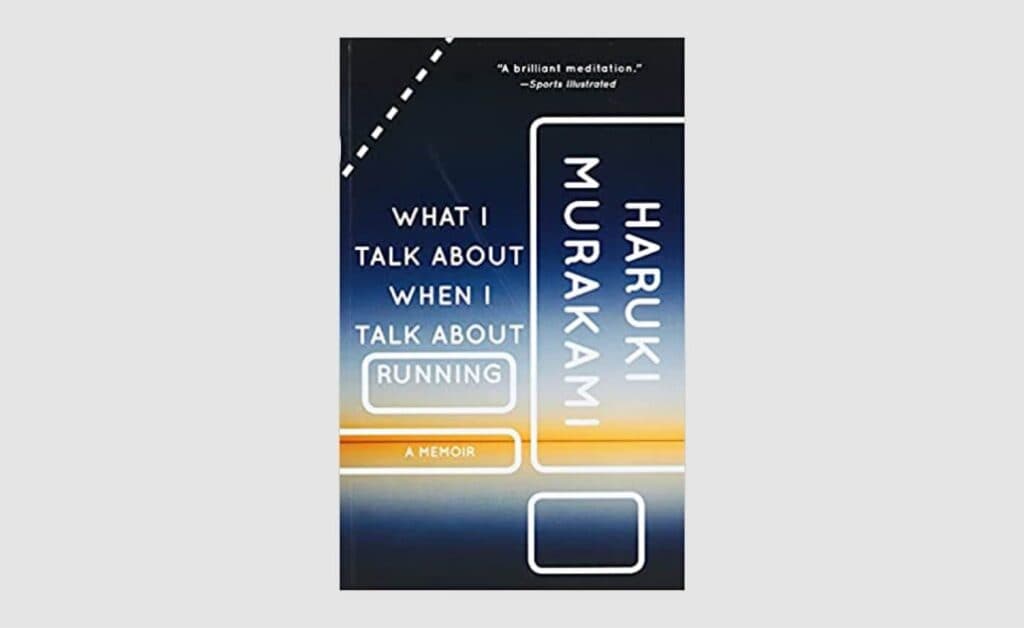
Source: Amazon
Haruki Murakami is arguably the most popular Japanese writer alive who is known for his surreal, dreamlike novels such as “The Wind-Up Bird Chronicle”.
In this book, he shares his thoughts on running and writing, the connection between the two, and what he has learned from both.
“What I Talk When I Talk About Running” is one of those books on writing that provide a glimpse into the day-to-day reality of the writing life.
Just like being a marathon runner, being a professional writer requires dedication, discipline, and perseverance. There’s just no way around it.
Buy on Amazon
6. Margaret Atwood “Negotiating with the Dead: A Writer on Writing”
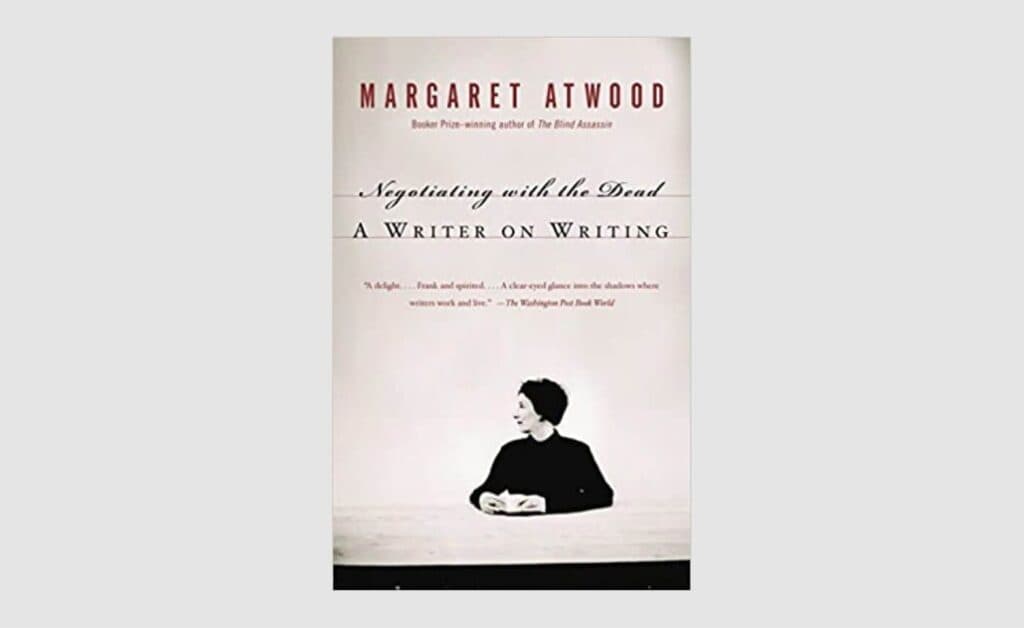
Source: Amazon
Margaret Atwood is a Canadian writer best known for her dystopian novel “The Handmaid’s Tale”.
In “Negotiating With the Dead”, she examines the nature of writing, why people choose the writing life, and what that path involves.
Atwood also discusses what role mortality plays in all this, which is certainly an interesting perspective on why people feel compelled to write.
Buy on Amazon
7. William Zinsser “On Writing Well: The Classic Guide to Writing Nonfiction”
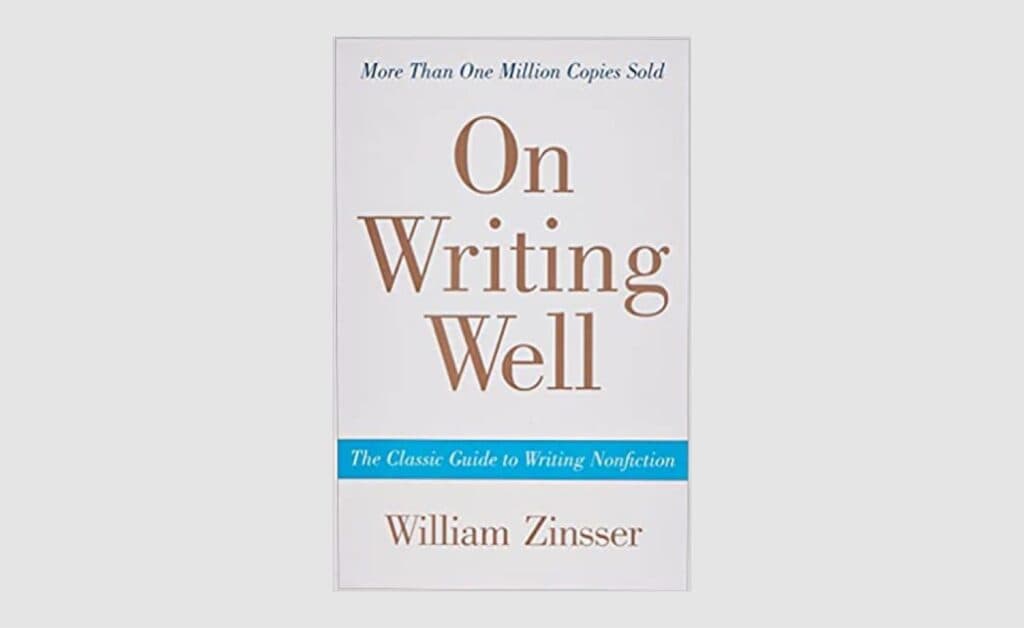
Source: Amazon
William Zinsser was an American writer, editor, literary critic, and teacher who taught writing at several universities.
This widely acclaimed book on writing is a must-read for nonfiction writers who want to get better at their craft.
The principles discussed in this book apply to all kinds of nonfiction, from travel writing to sports writing to memoirs, so whatever it is that you have in mind, “On Writing Well” is worth reading.
Buy on Amazon
8. Rob Fitzpatrick “Write Useful Books: A modern approach to designing and refining recommendable nonfiction”
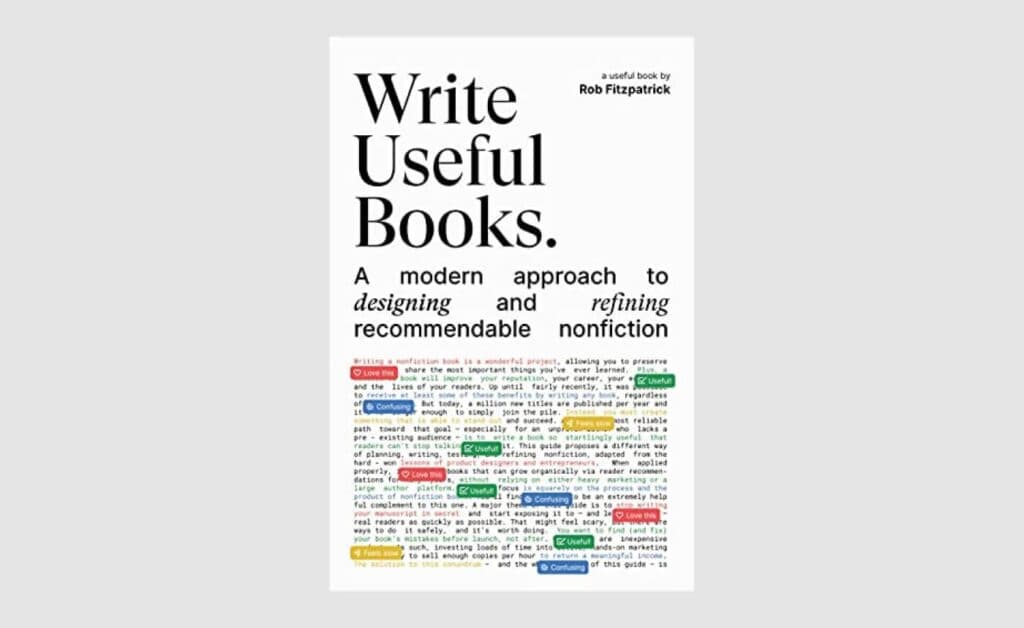
Source: Amazon
In “Write Useful Books”, he applies the startup way of thinking to writing nonfiction, with practical tips on how to scope, design, and test your book.
Rob Fitzpatrick is a writer and entrepreneur best known for his business book “The Mom Test”.
He also discusses how to write a book that grows in popularity via word-of-mouth without you having to promote it all the time.
This is another must-read for nonfiction writers.
Buy on Amazon
9. Jurgen Wolff “Your Creative Writing Masterclass”
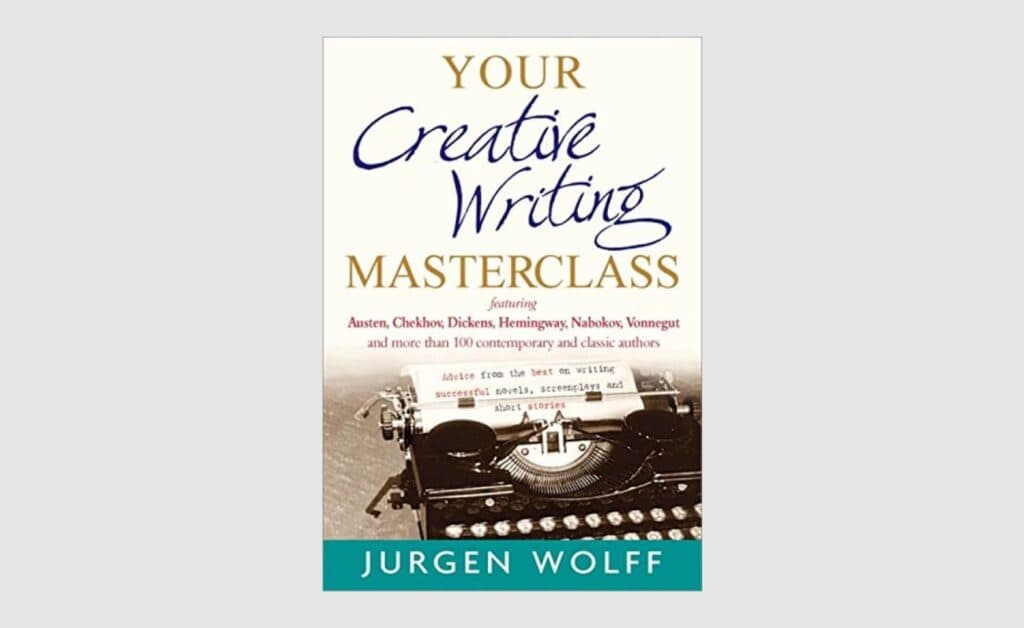
Source: Amazon
Jurgen Wolff is the author of several popular books on writing, including “Your Creative Writing Masterclass”.
In this book, he shares valuable advice from over a hundred classic and contemporary authors, from Austen to Chekhov to Stephen king.
Buy on Amazon
10. Natalie Goldberg “Writing Down the Bones: Freeing the Writer Within”
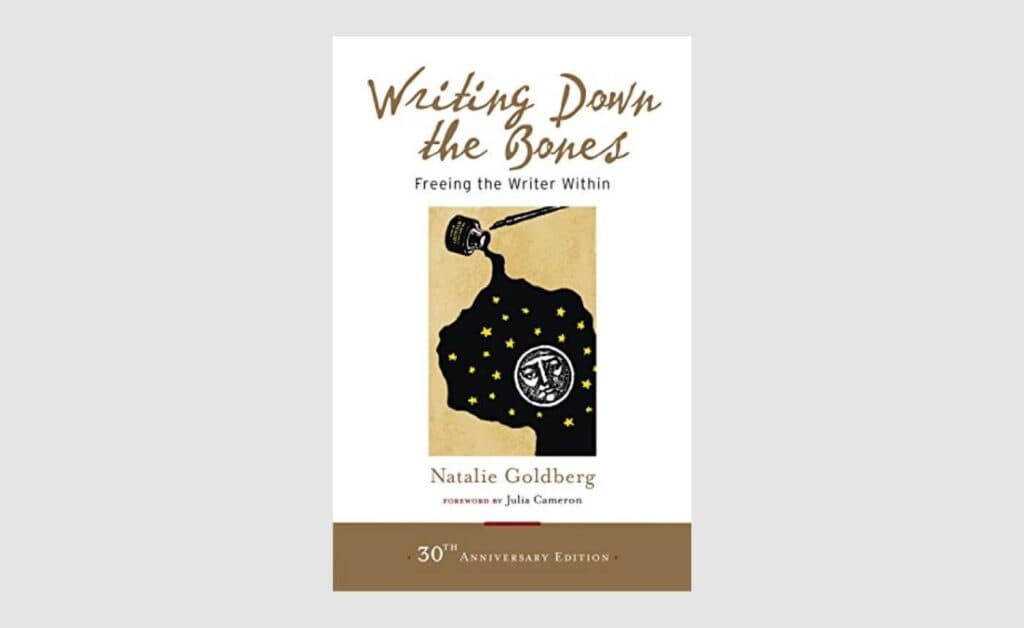
Source: Amazon
Natalie Goldberg is an American writer best known for her classic book on writing “Writing Down the Bones”.
In this book, she discusses various aspects of the writing life, including self doubt, writer’s block, creative process, and more.
She also discusses her spiritual practice, her writing practice, and the connection between the two.
This book can help you navigate your own writing journey, especially if you are drawn to Eastern spirituality and Buddhist wisdom resonates with you.
Buy on Amazon
11. Anne Lammot “Bird by Bird: Some Instructions on Writing and Life”
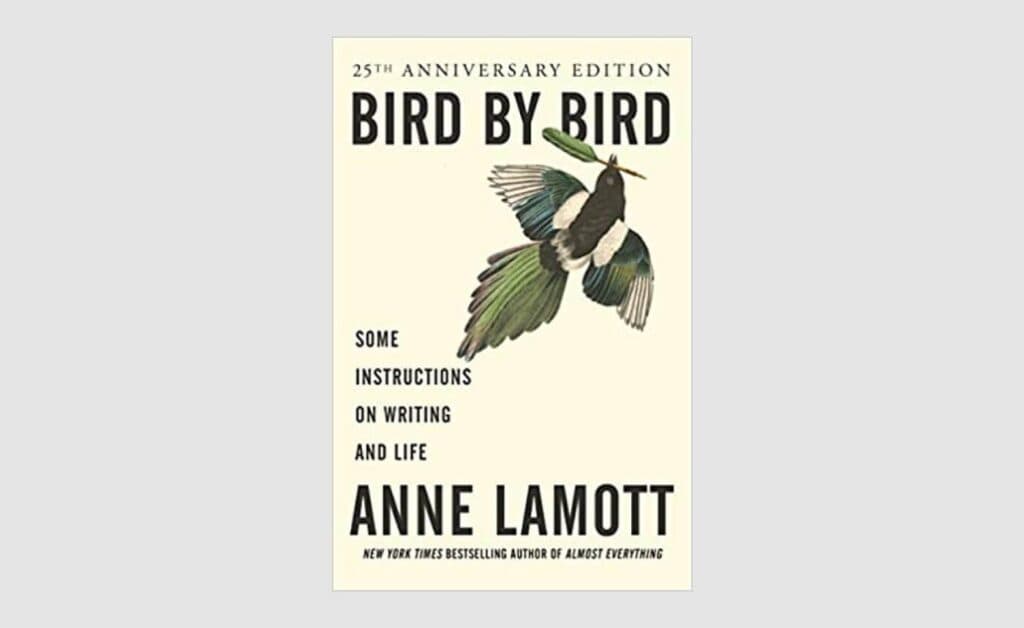
Source: Amazon
Anne Lammot is a New York Times best-selling author best known for her classic book on writing “Bird by Bird”.
In this book, she shares valuable advice on how to handle the ups and downs of living a creative life, the realities of writing professionally, dealing with obstacles such as writer’s block, and more.
This iconic passage can give you a glimpse into what “Bird by Bird” is all about:
“Thirty years ago my older brother, who was ten years old at the time, was trying to get a report on birds written that he’d had three months to write. It was due the next day. We were out at our family cabin in Bolinas, and he was at the kitchen table close to tears, surrounded by binder paper and pencils and unopened books on birds, immobilized by the hugeness of the task ahead. Then my father sat down beside him, put his arm around my brother’s shoulder, and said, ‘Bird by bird, buddy. Just take it bird by bird.”
Buy on Amazon
12. Dean Koontz “How to Write Bestselling Fiction”
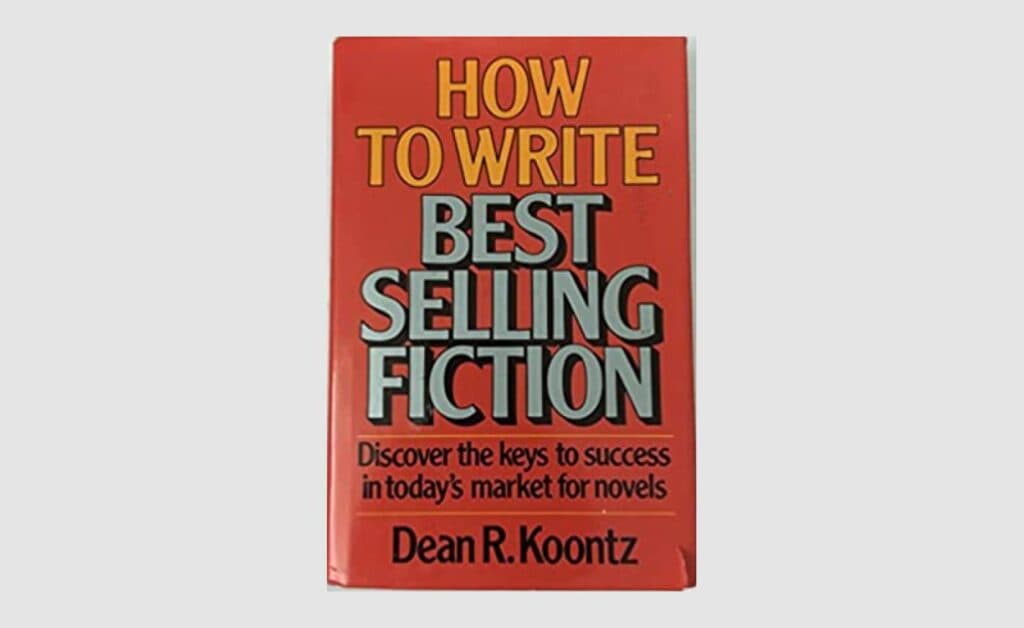
Source: Amazon
Dean Koontz is a New York Times best-selling author known for his popular suspense thrillers that often include horror and science fiction elements.
In his book on writing “How to Write Best Selling Fiction”, Koontz shares practical advice for fiction writers that ranges from reminding the reader of important grammar rules to advising them on how to deal with literary agents and book publishers.
Buy on Amazon
13. Ursula K. Le Guin “Steering the Craft: A Twenty-First-Century Guide to Sailing the Sea of a Story”
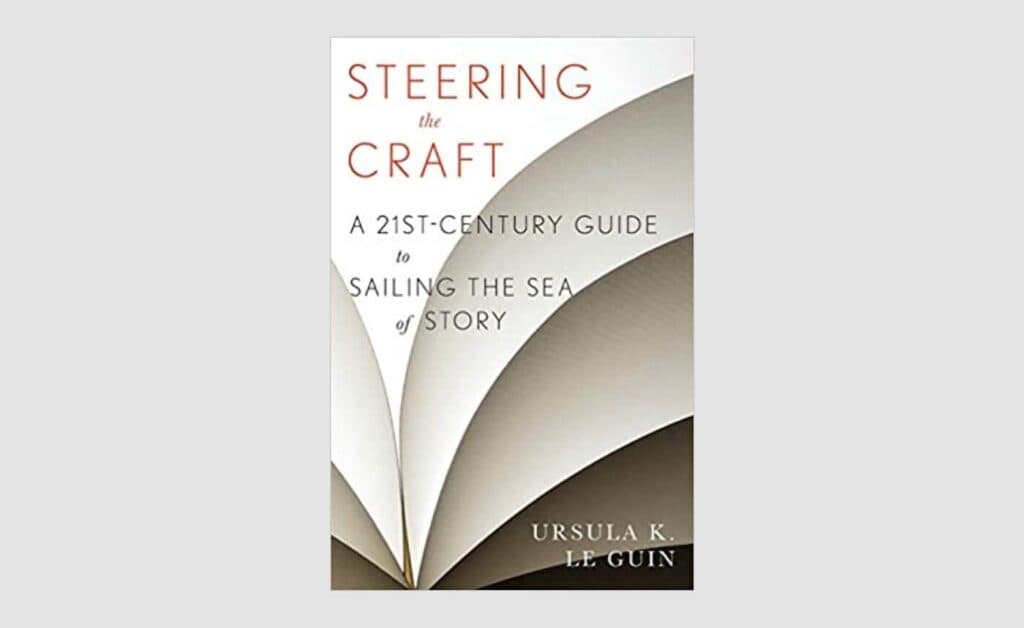
Source: Amazon
Ursula Le Guin was an American writer best known for her science fiction and fantasy novels such as the works set in the Hainish and the Earthsea universes.
“Steering the Craft” is her deceptively simple and concise book in which Le Guin shares the lessons she has learned over her long and illustrious writing career.
It’s worth noting that this book is based on the writing workshops that Le Guin taught to aspiring writers.
Consequently, her advice is grounded in her experience not only as a writer but also as a teacher who has helped countless students get better at writing fiction.
Buy on Amazon
14. Les Edgerton “Hooked: Write Fiction That Grabs Readers at Page One & Never Lets Them Go”
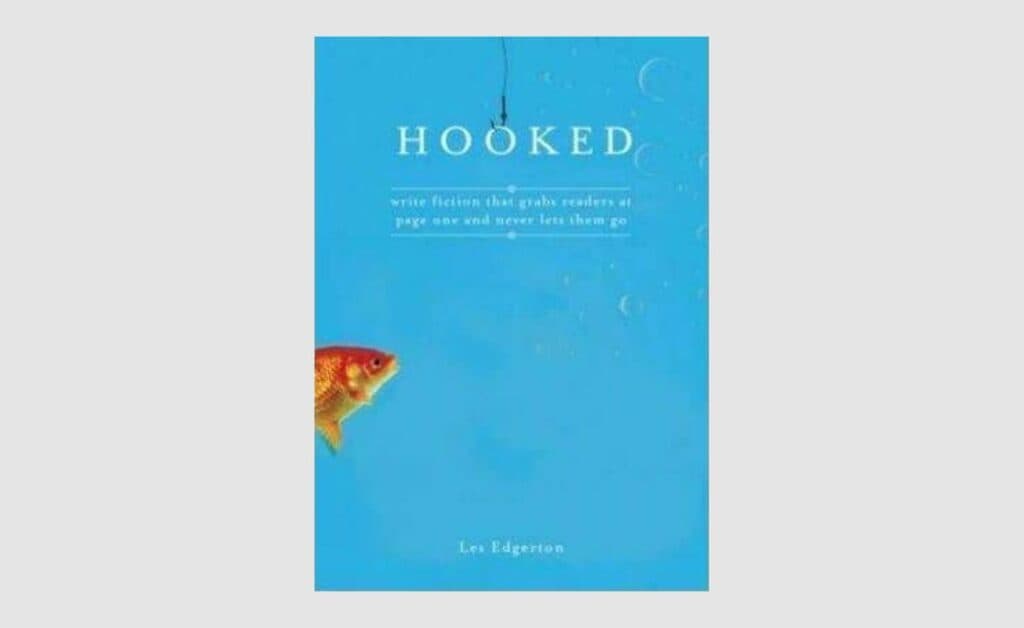
Source: Amazon
Les Edgerton is a published author with 22 books under his name so far, one of the most popular of them being “Hooked”.
This book is an in depth guide for aspiring writers on how to craft an opening that draws the reader in and never lets them go.
It’s worth noting that a good opening can also help you get the attention of literary agents and book publishers, so its importance can’t be overstated.
Buy on Amazon
15. Courttia Newland and Tania Hershman “Writing Short Stories”
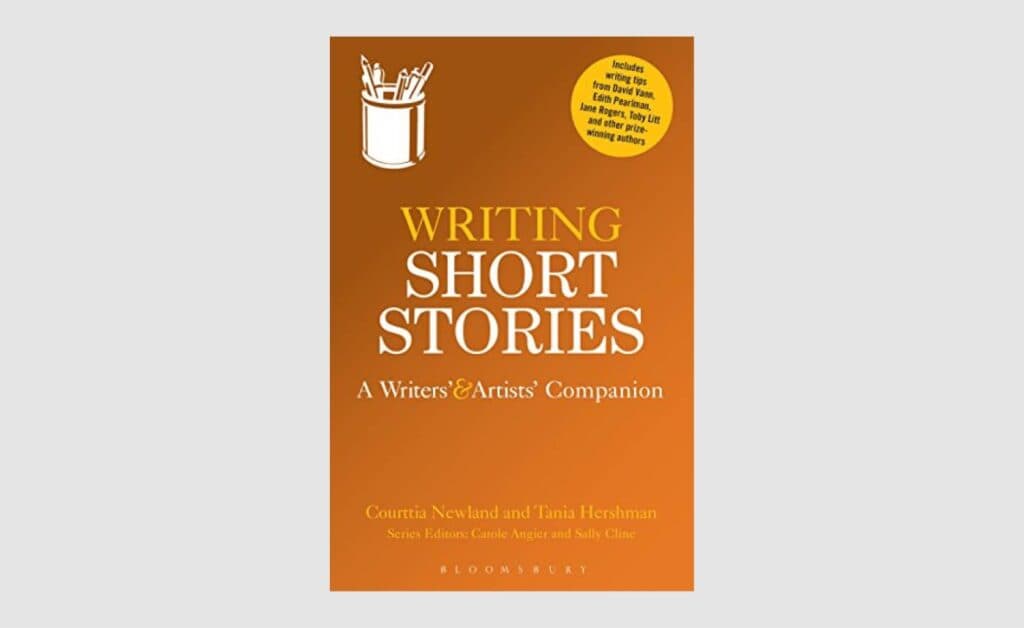
Source: Amazon
Courttia Newland and Tania Hershman are accomplished science fiction writers known for their imaginative short stories.
In their book “Writing Short Stories”, they discuss the fundamental principles of writing short stories, the lessons they have learned from their own writing, and tips from various leading short story writers.
Buy on Amazon
16. Jeff VanderMeer “Wonderbook: The Illustrated Guide to Creating Imaginative Fiction”
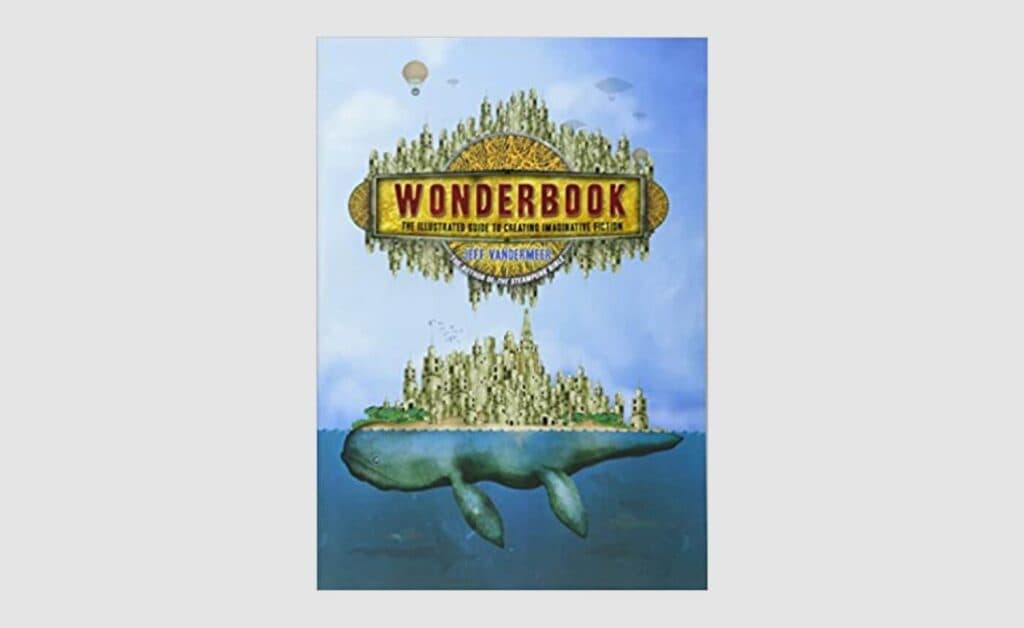
Source: Amazon
Jeff VanderMeer has been a published writer since age 14. He is best known for his science fiction novels such as The Southern Reach trilogy.
In “Wonderbook”, which has received praise from beginning writers and published authors alike, he shares the writing process for writing imaginative fiction.
This book stands out from the other books on writing by being not only well written but also beautifully illustrated which is perfect for visual learners.
Buy on Amazon
17. Timothy Hickson “On Writing and Worldbuilding: Volume I”
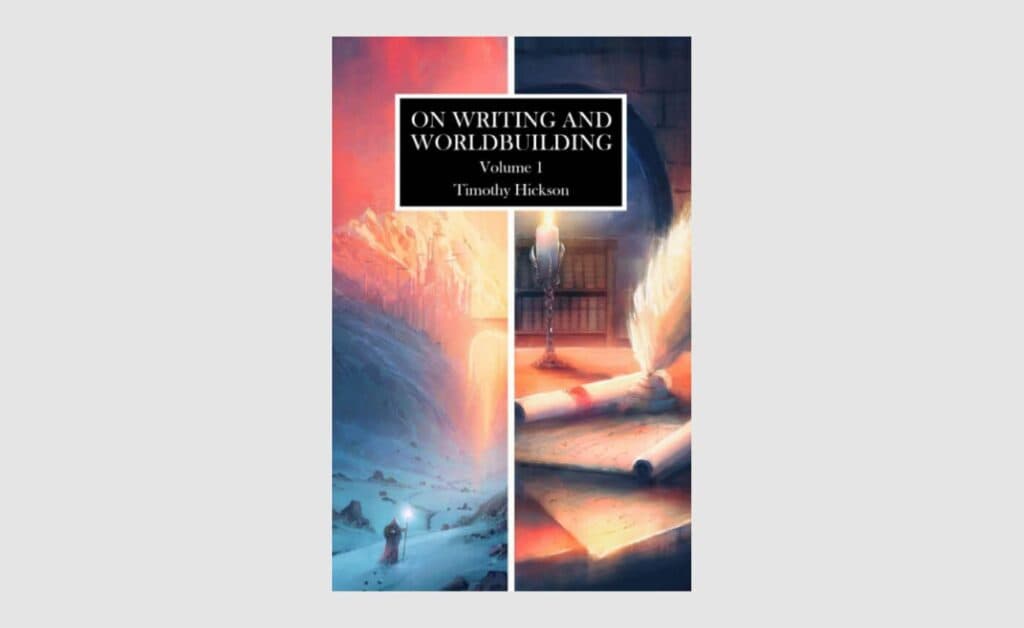
Source: Amazon
Timothy Hickson is a YouTuber who makes educational content on writing, narrative, and worldbuilding. His channel Hello Future Me has over 879k subscribers.
His book “On Writing and Worldbuilding” (Volume I) offers a ton of practical advice for beginning writers, from successfully using techniques such as foreshadowing to creating a believable hero-villain relationship to building the world in which your story will take place.
This is one of the best books on writing for aspiring writers who are interested in the epic fantasy genre.
Buy on Amazon
18. James Scott Bell “Plot and Structure: Techniques and Exercises for Crafting a Plot that Grips Readers from Start to Finish”
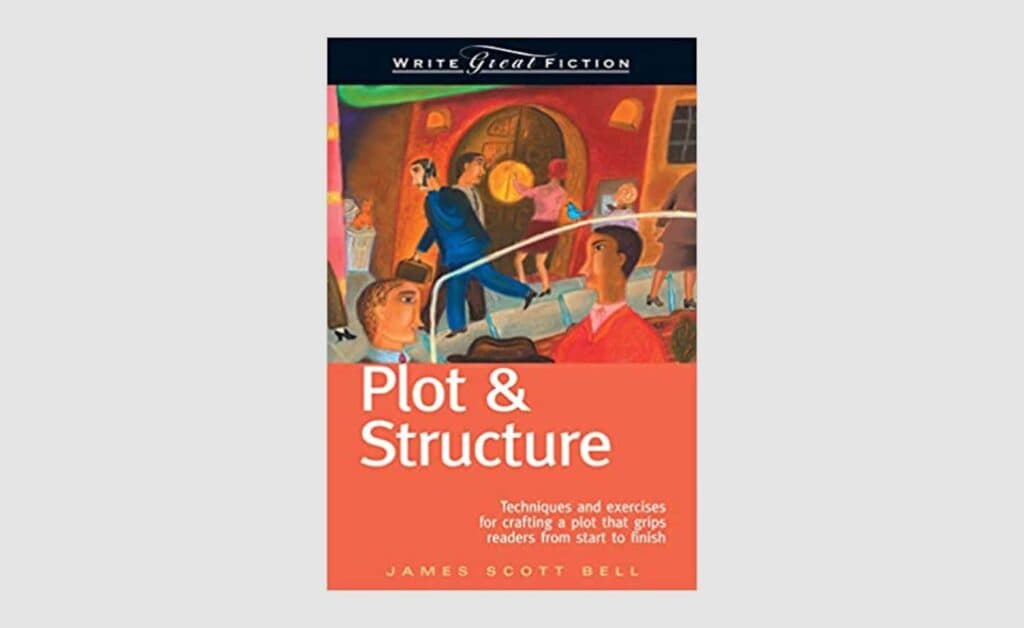
Source: Amazon
James Scott Bell is a writer who is best known for his books on various aspects of fiction writing.
In his book “Plot and Structure”, he discusses topics such as story structure, plot, plotting for commercial fiction vs. plotting for literary fiction, and more.
He also shares various exercises, techniques, and writing tools that can help you improve your writing process.
Note that this book is much more technical than most of the other writing books on this list.
Buy on Amazon
19. Brandilyn Collins “Getting Into Character: Seven Secrets A Novelist Can Learn From Actors”
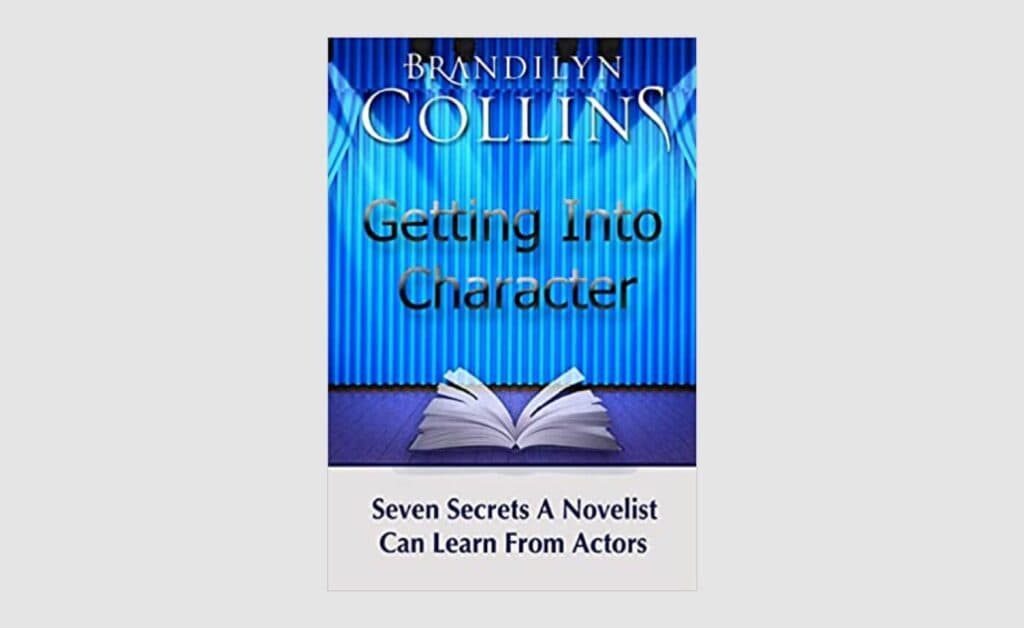
Source: Amazon
Brandilyn Collins is an author of over 30 books aimed at the Christian audience. She is best known for her suspense novels.
She is also a writing teacher and the author of “Getting Into Character”, a book on applying methods used by actors to writing in order to create more believable characters.
It’s an in depth guide to characterization that includes tips on making sure that the characters have three-dimensional emotional lives, defining their objectives, using their distinctive traits to move the plot forward, and more.
Buy on Amazon
20. Jessica Morell “Bullies, Bastards and Bitches: How to Write the Bad Guys of Fiction”
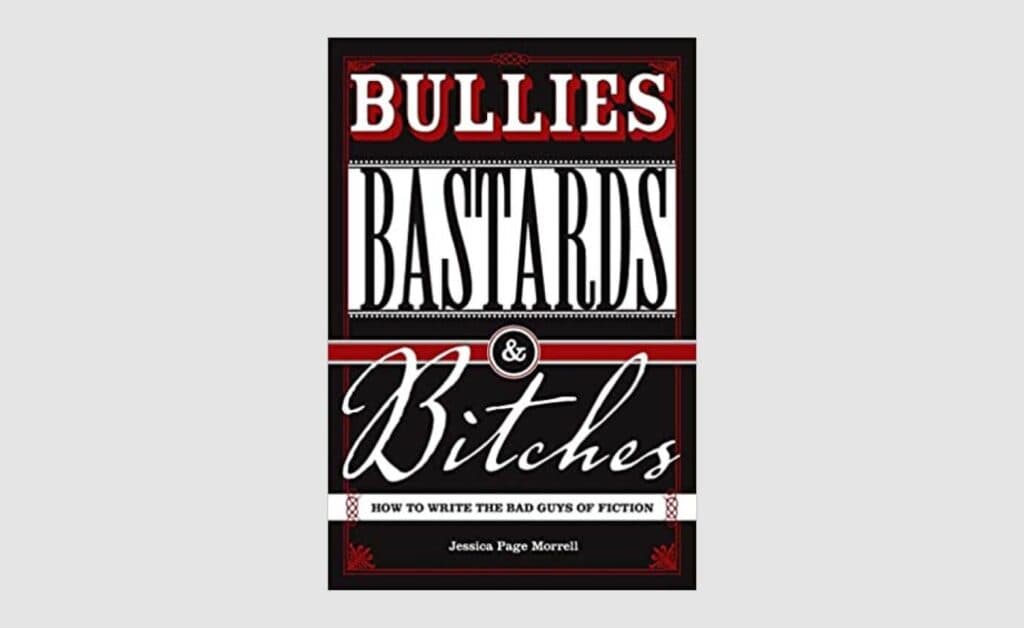
Source: Amazon
Jessica Morell is a writer best known for her books on writing fiction.
Her book “Bullies, Bastards and Bitches” is especially valuable because it’s one of the best books out there on creating a memorable antagonist.
She explains the difference between various types of protagonists, explains how to make your antagonist more engaging by giving them sympathetic attributes, discusses the archetypes of female villains, and more.
This is a great resource for anyone who is tired of writing basic “bad guy” characters. It’s time to start adding depth to your villains!
Buy on Amazon
21. Mystery Writers of America “How to Write a Mystery: A Handbook from Mystery Writers of America”
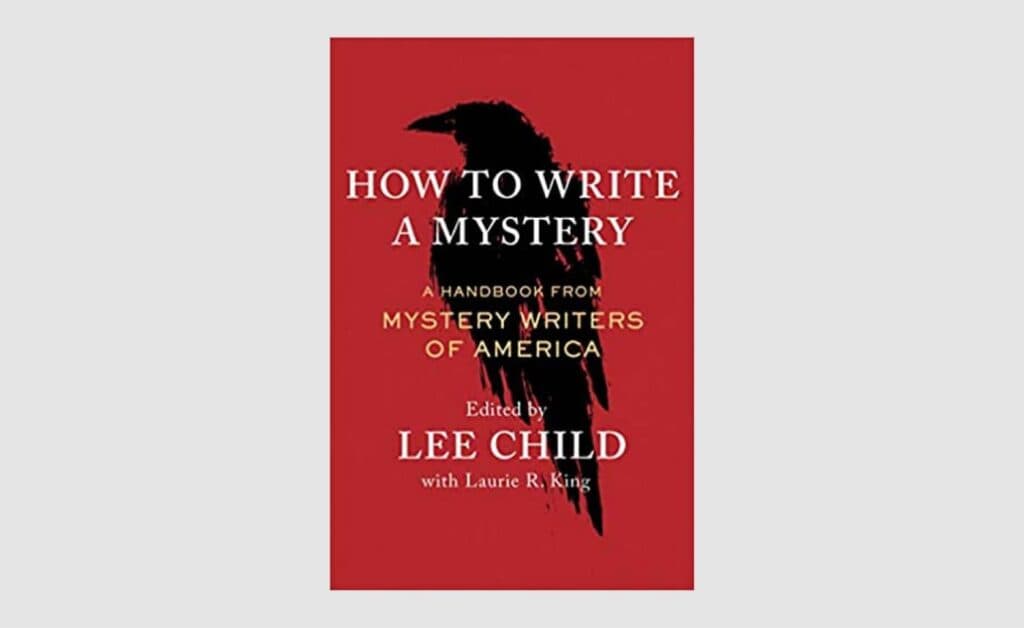
Source: Amazon
“How to Write a Mystery” is one of the best books on writing mysteries out there.
It’s a compilation of essays from 70 of the most successful writers in businesses, with a table of content that looks like a “who is who” of this genre.
The book is divided into three key sections: before writing, while writing, and after writing.
There’s also a “Other than Novels” section that covers short stories, true crime, and more.
Plus, there’s a “Other Considerations” section that addresses various issues, such as criticism, legal considerations, etc.
Buy on Amazon
22. Gwen Hayes “Romancing the Beat: Story Structure for Romance Novels”
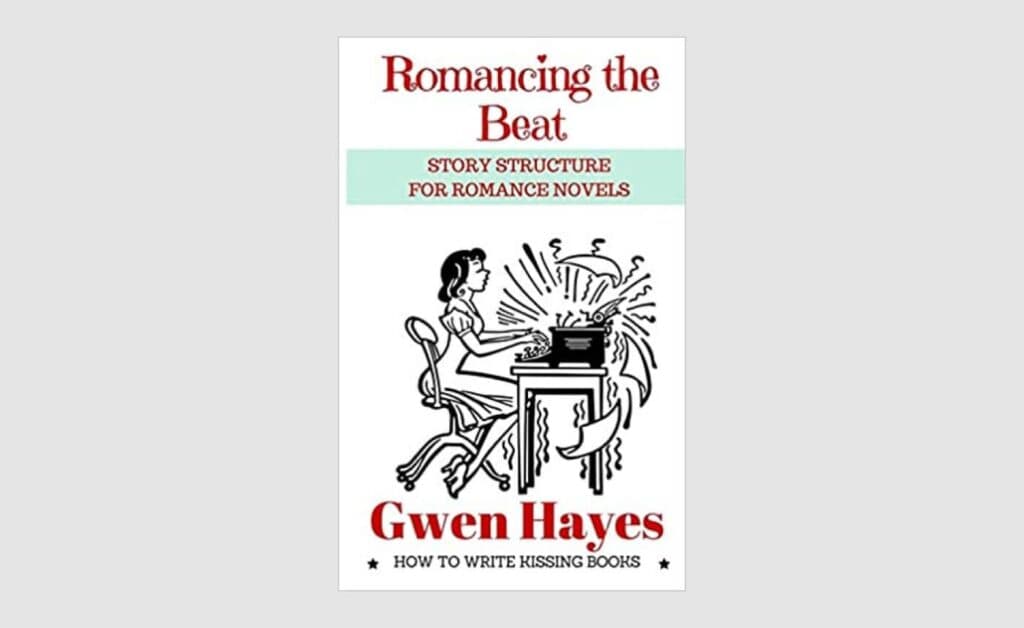
Source: Amazon
Gwen Hayes is a successful romance author who has also published a romance writing handbook called “Romancing the Beat”.
This book provides what is known as a “beat sheet” – an outline of the key points in the story that you can adapt to your own writing.
It’s one of the best books on writing romance out there – it covers everything you need to know from story structure to plot development to character development.
Buy on Amazon
23. Rachel Aaron “2k to 10k: Writing Faster, Writing Better, and Writing More of What You Love”

Source: Amazon
Rachel Aaron is a fantasy writer and the author of “2,000 to 10,000”.
In “2,000 to 10,000”, she shares her own writing journey of going from averaging 2k words per day to averaging 10k words per day, as well as exactly what to do if you want to increase your own writing speed.
Why are writers so obsessed with word counts these days? It’s because the average fiction writer needs to consistently produce 1-2 books a year in order to make a living. This is especially true if you go the self-publishing route.
So if you dream of writing fiction full-time, forget about leisurely scribbling away at your favorite cafe, you need to get serious about increasing your writing speed!
Buy on Amazon
24. Thomas Emson “How To Write A Novel In 6 Months: A published author’s guide to writing a 50,000-word book in 24 weeks”
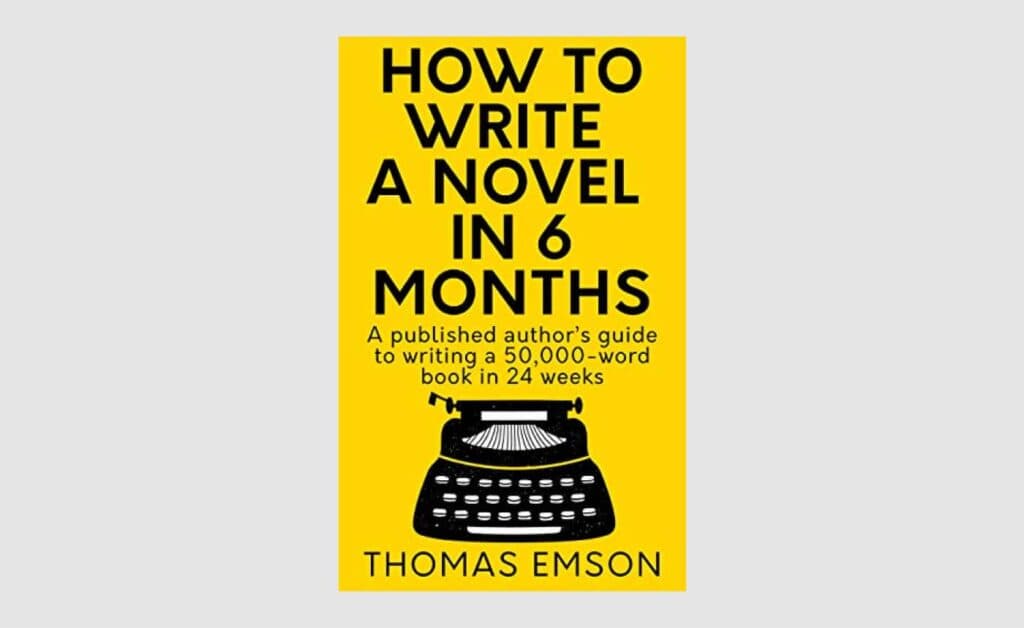
Source: Amazon
Thomas Emson is a horror writer who has published seven books between 2006 and 2012.
In fact, in his publishing contract, he had agreed to write two books per year, with the length of the novels varying between 90,000 and 120,000 words. One year he wrote three books!
So when Thomas Emson tells you how to write a novel in just half a year, you might want to pay attention because he knows what he’s talking about.
In his book “How to Write a Novel in 6 Months”, he lays out a step-by-step plan on how to do just that even if you already have a busy life.
Obviously, merely writing a book is not a guarantee that anyone will want to buy it, but it’s the first step to becoming a full-time writer.
Buy on Amazon
25. “Self-Editing for Fiction Writers” by Renni Browne and Dave King
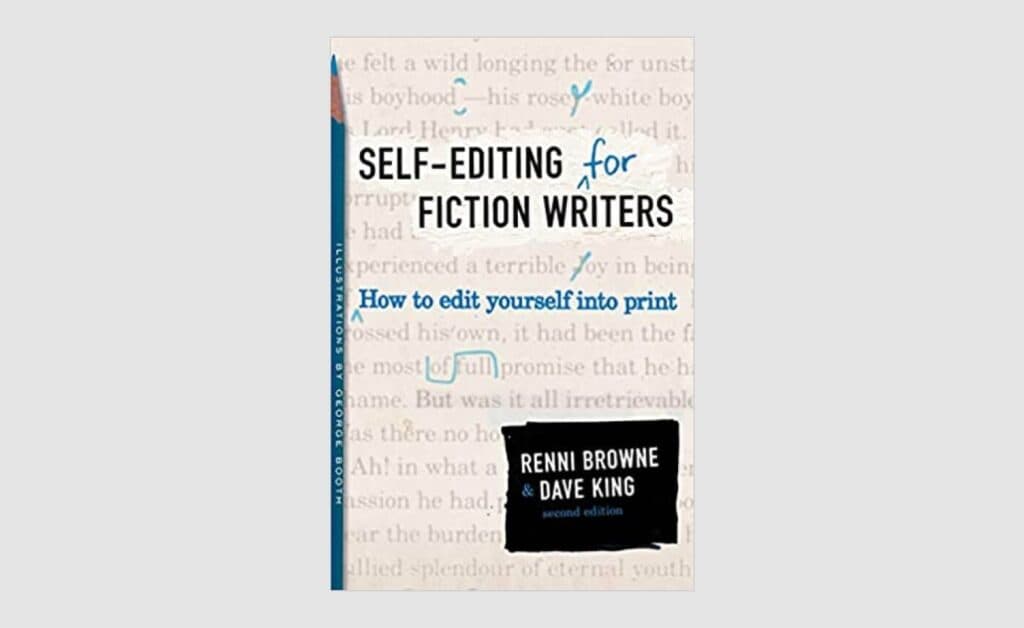
Source: Amazon
Let’s keep it real:
Most self-published writers don’t have the money to hire a professional editor. At least not at the beginning of their careers.
That’s why Renni Browne and Dave King’s “Self-Editing for Fiction Writers” is so helpful to those of us who haven’t reached literary stardom just yet.
In this book, the authors walk you through the process that a professional editor would go through in order to polish your manuscript before publishing.
They cover topics such as points of view, inner monologue, dialogue, and more.
Buy on Amazon
FAQs
How to become a better writer?
- Read more.
- Write more.
- Get feedback.
What books should I read to write better non-fiction?
- Great non-fiction books.
- William Zinsser “On Writing Well”
- Rob Fitzpatrick “Write Useful Books”
What books should I read to write better fiction?
- Great fiction books from all genres.
- Writer memoirs such as Stephen King’s “On Writing”, Ray Bradbury’s “Zen in the Art of Writing”, Haruki Murakami’s “What I Talk About When I Talk About Running”, etc.
- Writing books on subjects such as story structure, plot development, character development, dialogue, worldbuilding, etc.
How to write a novel?
Read Thomas Emson’s “How To Write A Novel In 6 Months: A published author’s guide to writing a 50,000-word book in 24 weeks” and follow his advice.




























